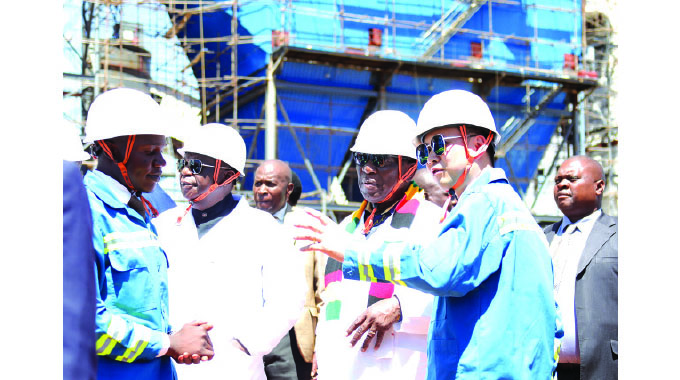Chinhoyi Battle: Where Mbuya Nehanda’s prophecy came to pass
Lovemore Ranga Mataire Senior Writer
The song “Viva Chinhoyi” by Biggie Tembo and the Bhundu Boys is a rare tribute to the seven gallant freedom fighters who perished on the banks of Hunyani River on April 28, 1966 after a day’s fierce fight against the Rhodesian forces that descended on the town after getting wind of guerillas’ presence. The song succinctly captures the reverence that Zimbabweans have of the guerillas fondly referred to as magandanga. It is probably that Bhundu Boys’ song that also contributed in literally transforming Chinhoyi to a place of great spiritual and historical significance among Zimbabweans. After courageously repelling Rhodesian forces for almost 10 hours, the seven comrades later succumbed to Rhodesia’s well resourced military forces after running out of ammunition.
While the Rhodesian forces were triumphant in having vanquished the seven freedom fighters, little did they know that a few years later the battle would become an inspirational springboard for a fully fledged guerilla war.
Incarcerated political leaders received the news of the Chinhoyi battle with exuberant and wild celebrations. The same mood immediately spread across the whole country as for the first time the repressive Rhodesian military machinery was shaken by the incursions into the interior of the country by the guerillas.
The Chinhoyi Battle was indeed a defining moment in the history of Zimbabwe as it heralded the beginning of the Second Chimurenga. Spiritually, the battle was the ultimate fulfilment of Mbuya Nehanda’s prophetic words that her bones will rise again. The attack also coincided with the 68th anniversary of the revered spirit medium.
Unknown to most people, the seven gallant fighters; David Guzuzu, Christopher Chatambudza, Arthur Maramba, Simon C. Nyandoro, Godfrey Manyerenyere, Godwin Dube and Chubby Savanhu were part of a 21-member Zanla group that had been trained at Nanking Military Academy in Peking, China. The group sneaked into the country from Zambia and later split into three groups upon reaching Chinhoyi. The three smaller groups had been given specific tasks by Zanla’s Dare ReChimurenga chairman Dr Herbert Chitepo. Their sabotage acts were meant to cause turmoil within the Rhodesian establishment and work as a signal to other groups entering the country through Mozambique to commence the armed struggle.
As in the late Dr Felix Muchemwa’s book, “The Struggle for Land in Zimbabwe,” the “instruction was to precipitate an insurrection in and around Sinoia, and other instructions were to cut down electricity and telephone power lines, and attack European commercial farms.”
However, the plan could not be executed as envisaged, for after staying for a few weeks on the outskirts of Chinhoyi undertaking reconnaissance, the Rhodesian forces were alerted of the group’s presence by a woman who was their contact with the masses. The plan was also further put into disarray when the other group that had proceeded to Chegutu killed a white commercial farmer, Johannes Viljoen and his wife at Nevada Farm on May 16, 1966 without having waited for a signal from Chinhoyi.
The Chinhoyi group’s plan was to blow up the pylon from Kariba that supplied electricity to the whole country but this task was not executed to their expectations as the damage only caused minor darkness in Chinhoyi. The idea was to plunge the whole country into darkness and this was to work as a signal to other groups to launch other sabotage acts.
However, news had already spread of the guerillas presence in Chinhoyi and their planned sabotage acts. Backed by helicopter gunships, the Rhodesian forces made a surprise attack on the Zanla guerilla positions and in the ensuring fierce running battled the entire group of seven perished after running out of ammunition. Some Rhodesian black collaborators in the town were tasked with burying the seven freedom fighters at the site of the battlefield. All their belongings were also buried with them as the Rhodesians made sure to erase anything that would work as some kind of inspirational souvenir.
Immediately after the battle, Chinhoyi was flooded with Rhodesia police which arrested anyone suspected to have collaborated with the freedom fighters. Many were given long sentences in jail while others were never seen by their relatives.
In a befitting tribute to the gallant fighters, the new majority Government of President Mugabe has since turned the battle site into a Provincial Heroes Acre. Sadly, the seven have never been nationally acknowledged as national heroes.





Comments